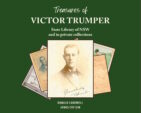Captain’s Diary 2008
Archie Mac |Published: 2008
Pages: 374
Author: Ponting, Ricky
Publisher: Harper Sports
Rating: 3.5 stars
The season covered in Captain’s Diary must rate as just about the most controversial in Australian cricket since the WSC schism of the seventies, and to the credit of Ricky Ponting he does not shirk any of the incidents.
He commences with the Harbhanjan Singh racist comments saga, and then restarts with the ICC World Twenty20 competition and finally finishes with the Australians tour of the West Indies. The book is a comprehensive coverage of the season, and for the statistically minded a scorecard is provided for every international match played by Australian during the period covered.
The book is co-written with Geoff Armstrong who also collaborated with Steve Waugh on his tour diaries, and although I have them all I am yet to read them, but I hope they are not strewn with as many typographical errors as this effort. Even though these mistakes are annoying they do not overly detract from the enjoyment of the book.
If you were unaware of the Australians reputation for sledging then you would be forgiven for thinking them a cross between angels and choir boys. For according to Ricky Ponting every issue of misconduct or dissent that the Australians are charged with are the fault of the opposition or are simply an over reaction. It is not until page 286 after he was fined in the West Indies for disputing an umpires decision- and fined 30% of his match fee- that Ponting admits even the mildest of misconduct when he writes:
‘I’m prepared to concede that I should try to rein my over-reactions in, but I don’t think I’m ever going to be able to just stay mute, shrug my shoulders and accept bad mistakes as just being part of the game. That’s not me.’
Ponting is quite candid with his views on opposition players, and some of his own personal likes and dislikes, such as his misgivings of Twenty20 (although he seems to change his mind towards the end of the book), and his love of golf, he describes himself as a ‘Golf Tragic’.
Ponting considers himself a traditionalist and believes that country should come before profit, this opinion was expressed in relation to the IPL. The author feels that the IPL should be restricted to just one block of six weeks per season. You can really feel the concern that Ponting has for the game he loves most; Test cricket. The coverage of his time in IPL is amongst the most interesting writing in the book. It was a little surprising just how serious the players were in their desire to win the inaugural IPL tournament, with no hint of meaningless matches because of the lack of national pride. Although he did have one final shot at Harbhajan in regards to the Sreesanth incident:
‘For Harbhajan to do that to a guy with whom he has played plenty of international cricket was, in my view, quite dismal’.
Armstrong appears not to have overly interfered with the Ponting writing style, and you really feel that you are receiving Ponting’s honest view of events as they occurred. Although this is not recorded in a traditional diary format, with not an entry for every day, it does keep a continual commentary.
I was also surprised to be reminded that Ponting had -by his standards- a relatively poor season, and it was Andrew Symonds who topped the Test batting averages for Australia.
Ponting’s diary for the preceding season was the number one selling cricket book in Australia, and it will be no surprise if the 2008 publication is just as successful. It is easily the most comprehensive coverage of the Australian season you will find in book stores this Christmas.






Leave a comment